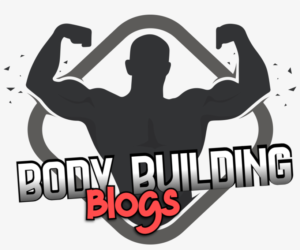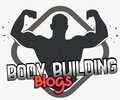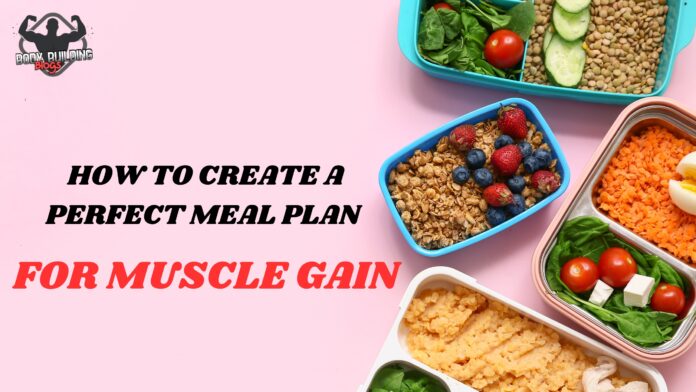To build muscle, you need to do more than just work out hard at the gym. The kitchen is where the real fun begins. What you eat, when you eat it, and how much you eat all have a big impact on how well your body can build lean muscle. A good meal plan makes sure your muscles get the right food so they can grow, heal, and do their best work.
If you’ve been working out but not seeing the results you want, you might need to pay more attention to what you eat. Let’s talk about how to make the best meal plan for building muscle. It should be easy to follow, balanced, and effective.
1. Find out how many calories you need
You You need to eat enough calories to start building muscle. You need to eat more calories than you burn in order to build muscle—this is known as being in a calorie surplus. Your body can’t make new muscle tissue without those extra nutrients and energy. Understanding the Calories You Need daily is essential for seeing progress.
To figure out how many calories you need:
- Find out your Basal Metabolic Rate (BMR) first. This is the number of calories your body needs to stay alive.
- Then, depending on how active you are (1.2 for not very active, up to 1.9 for very active), multiply that number by your activity level.
- Lastly, eat an extra 300 to 500 calories every day to help your muscles get bigger.
For example, if your total daily energy expenditure (TDEE) is 2,500 calories, you should eat 2,800 to 3,000 calories a day to build lean muscle.
2. Make sure you get the right amount of macronutrients.
To build muscle, you need to eat more than just a lot of food. Macronutrients are the right amounts of proteins, carbs, and fats that you need to eat.
Building muscle requires a lot of protein.
After a workout, protein is important for fixing and building muscle fibers. For every kilogram of body weight you have, you should eat between 1.6 and 2.2 grams of protein. Here are some good places to get information:
- Fish, turkey, chicken breast, and lean beef
- Eggs and the whites of eggs
- Greek yogurt and cheese from a cottage
- Lentils, quinoa, tempeh, and tofu are all foods that come from plants.
A good rule of thumb is to eat between 20 and 30 grams of protein at every meal.
Carbs: What Your Body Needs to Function
When you work out hard, carbs are the main thing that gives you energy. They help you get more glycogen and keep you from getting tired. You should try to get 45 to 55 percent of your calories from carbs. Here are some good places to get your carbs:
- Sweet potatoes, quinoa, brown rice, and oats
- Bread and pasta made with whole wheat
- Fruits and veggies
Carbs are good for you because they help you get your energy back and build muscle.
Fats that are good for you help with hormones.
Fats are important for making hormones, especially testosterone, which is very important for building muscle. These healthy fats should make up 20 to 30 percent of the calories you eat:
- Healthy foods include avocados, olive oil, nuts, seeds, and fatty fish like salmon.
3. When and how often to eat
The time of day you eat can affect how much muscle you gain. Eating at the right times can help you do better, heal faster, and stay consistent. But the most important thing is how many calories you eat.
Eat Before You Work Out
Eat a meal with both carbs and protein two to three hours before you work out. For example, you could have chicken, rice, and vegetables, or a protein smoothie with oats and a banana.
Eat after working out
After working out, eating a meal with a lot of protein and carbs will help your muscles heal faster. For example, you could have grilled fish with greens and sweet potatoes, or a banana and a protein shake.
How many times a day you eat
To keep your metabolism going and give your muscles a steady supply of nutrients, eat four to six small meals throughout the day. Most people do well when they eat every three to four hours.
4. Plan your meals around whole foods.
Plan your meals around whole foods that are high in nutrients instead of processed foods. Real foods have more nutrients, fiber, and fewer empty calories.
You can build muscle by eating these foods:
Proteins
- Chicken, turkey, fish, eggs, and lean beef
- Cottage cheese and Greek yogurt
- Beans, lentils, tofu, and tempeh are all plant-based proteins.
Carbs
- Brown rice, oats, quinoa, and sweet potatoes
- Whole grain bread or pasta
- Berries, apples, oranges, and bananas are all fruits.
- These are all vegetables: broccoli, spinach, carrots, and kale.
Fats
- Almonds, walnuts, chia, flax, and sunflower seeds are all seeds and nuts.
- Avocado and olive oil
- Fish like salmon or mackerel that are high in fat
Watering
You need to drink enough water in addition to eating solid food. Drink a lot of water all day, but especially before and after working out. Not drinking enough water can make it take longer for you to heal and make it harder for you to do your best.
5. A Sample Meal Plan for Building Muscle
If you want to build muscle without gaining fat, this is a simple and healthy complete meal plan. You can change the size of the portions based on how many calories you want to eat.
Breakfast
- Four scrambled eggs with mushrooms and spinach
- Two slices of whole grain toast
- A cup of milk or almond milk
Have a snack in the afternoon
- Greek yogurt with a mix of berries and honey
- A handful of almonds
Time for lunch
- Chicken breast cooked on the grill
- One cup of brown rice
- Vegetables that have been steamed, such as broccoli, carrots, and beans
- Put olive oil on top for healthy fats.
Eat something before you work out.
- A banana or an apple
- 1 scoop of whey protein mixed with water
Eat After Working Out
- Salmon on the grill
- Potatoes with sugar
- Salad with olive oil dressing on top
Dinner
- Stir-fry with tofu or lean beef
- Whole wheat or quinoa pasta
- Roasted vegetables
Have a snack before you go to bed.
- A spoonful of peanut butter on top of cottage cheese
- Or a shake that has protein in it
This kind of plan makes sure that your body always has the vitamins and minerals it needs to heal and grow.
6. Look at how far you’ve come and make any changes that are needed.
There is no such thing as a perfect meal plan from the start. Your genes, metabolism, and how hard you work out all affect how your body responds. This is how to stay on course:
- MyFitnessPal and Fitbit are two apps that can help you keep track of how many calories you eat.
- Check your weight once a week. You need to gain 0.25 to 0.5 kg every week to build lean muscle.
- If you stop losing weight, eat 200 to 300 more calories every day.
Building muscle takes time, so don’t forget that. Stay calm and keep going.
7. Don’t make the same mistakes over and over.
A lot of people have trouble planning their meals because they get too busy with these things:
- Not eating meals makes you lose calories and slows down the growth of your muscles.
- If you eat too much junk food, you will gain weight that you don’t want.
- If you don’t drink enough water, you get weaker and less able to last.
- There aren’t as many amino acids, which are important for muscle recovery, because there aren’t enough different kinds of protein.
- You shouldn’t just think about how much you have; you should also think about how good it is.
8. Use supplements wisely (optional)
Supplements can help make up for things you don’t get from food, but you shouldn’t use them instead of food. Think about:
Whey protein is an easy and quick way to get protein.
Creatine monohydrate helps muscles grow and get stronger — making it one of the most popular supplements for bodybuilding used by athletes and fitness enthusiasts.
Fish oil is good for the heart and helps you heal because it has a lot of omega-3s.
You can get the nutrients you need from multivitamins.
Don’t use them as quick fixes; use them to help you.onsistently.lp you reach your health goals more effectively.
Last Thoughts
Making a meal plan that will help you build muscle doesn’t have to be hard. If you want to lose weight, you need to eat enough calories, eat mostly healthy foods, balance your macros, and stick to your plan. Keep in mind that the best plan is one that you can follow.
Be patient, eat the right foods, and work out hard. You’ll see big changes in your muscles, energy, performance, and overall health over the course of weeks and months.


